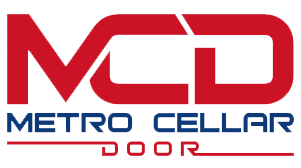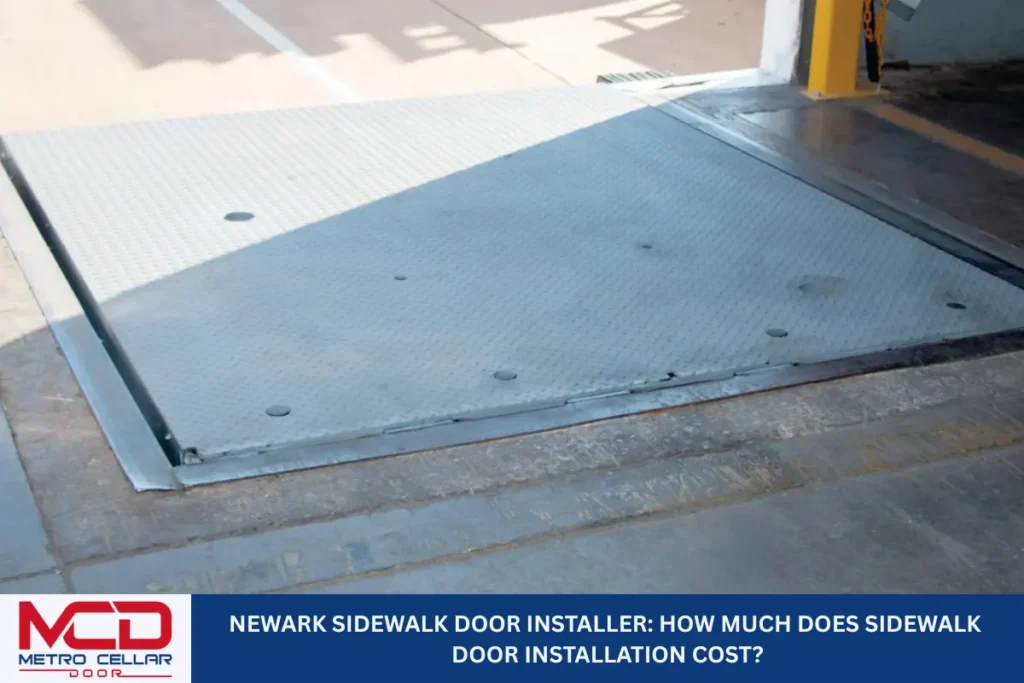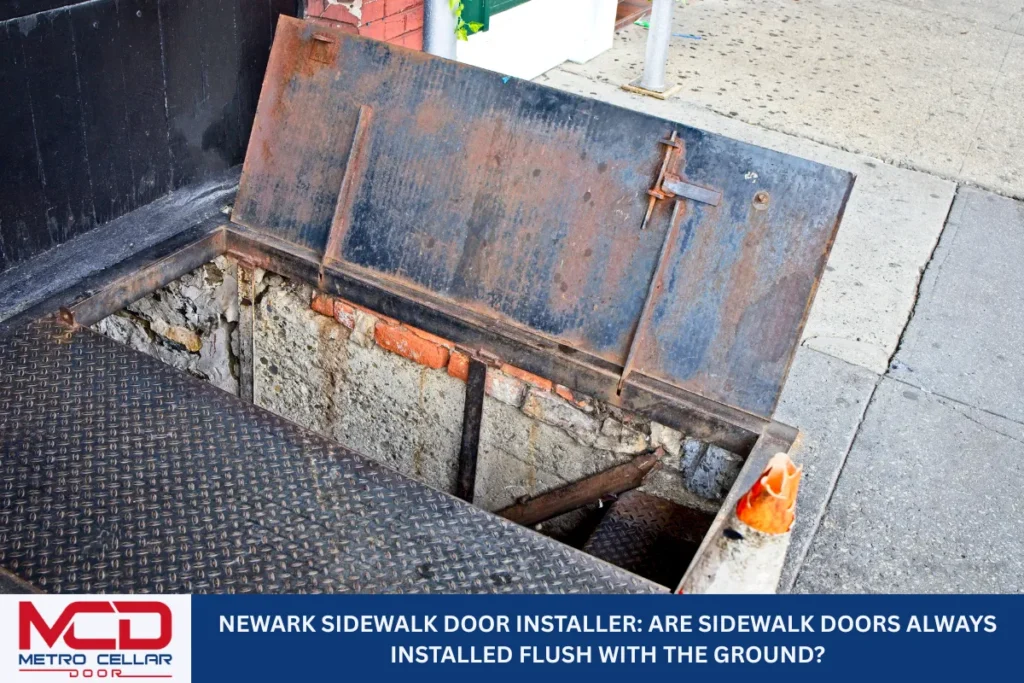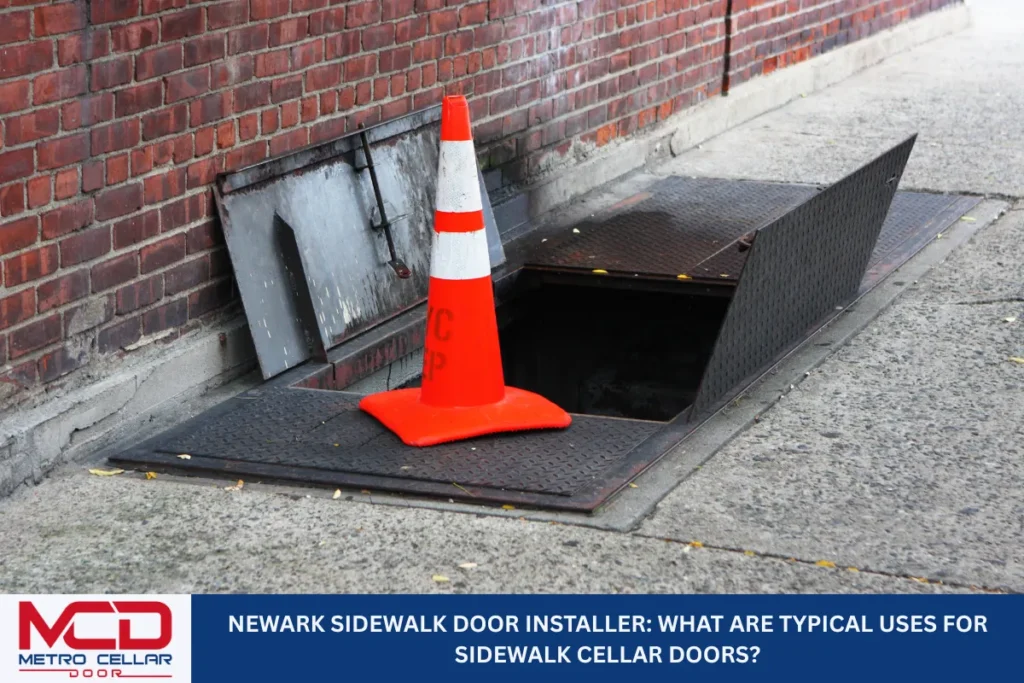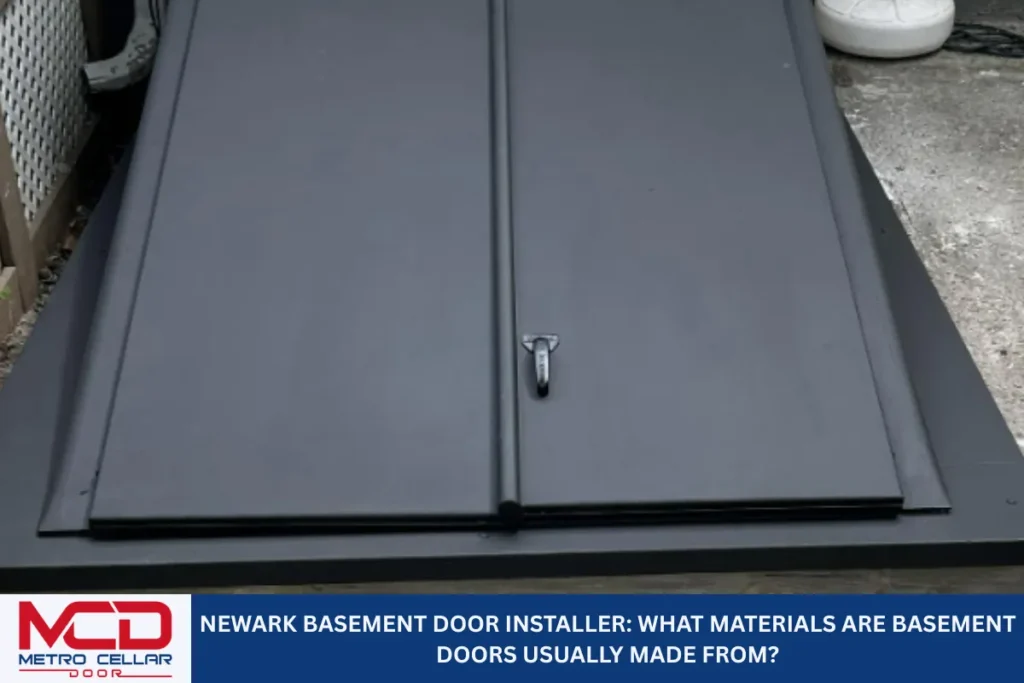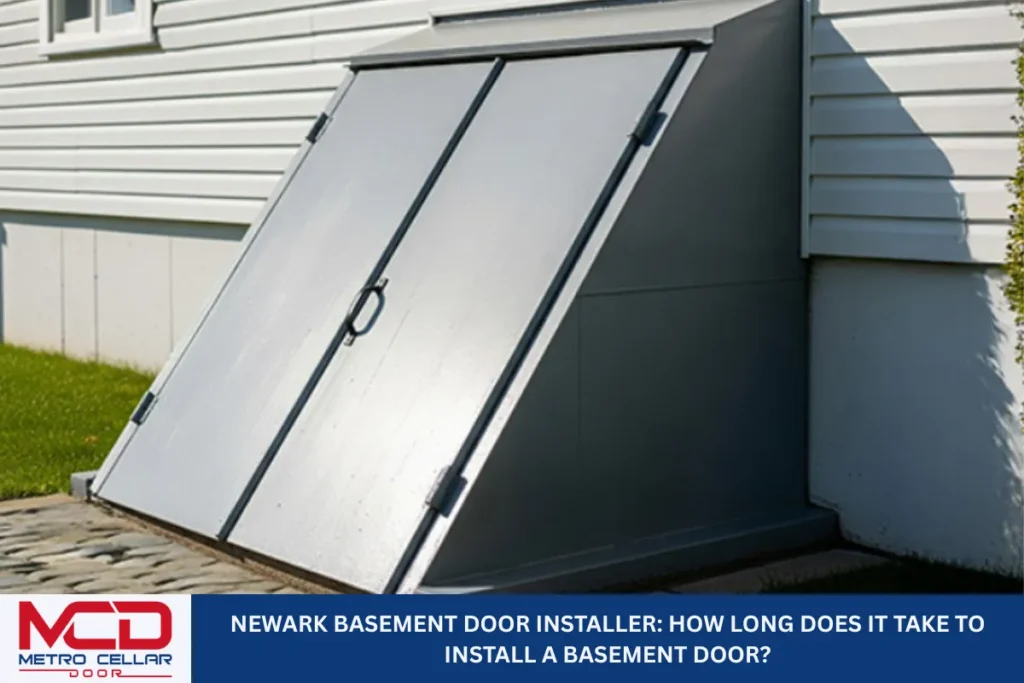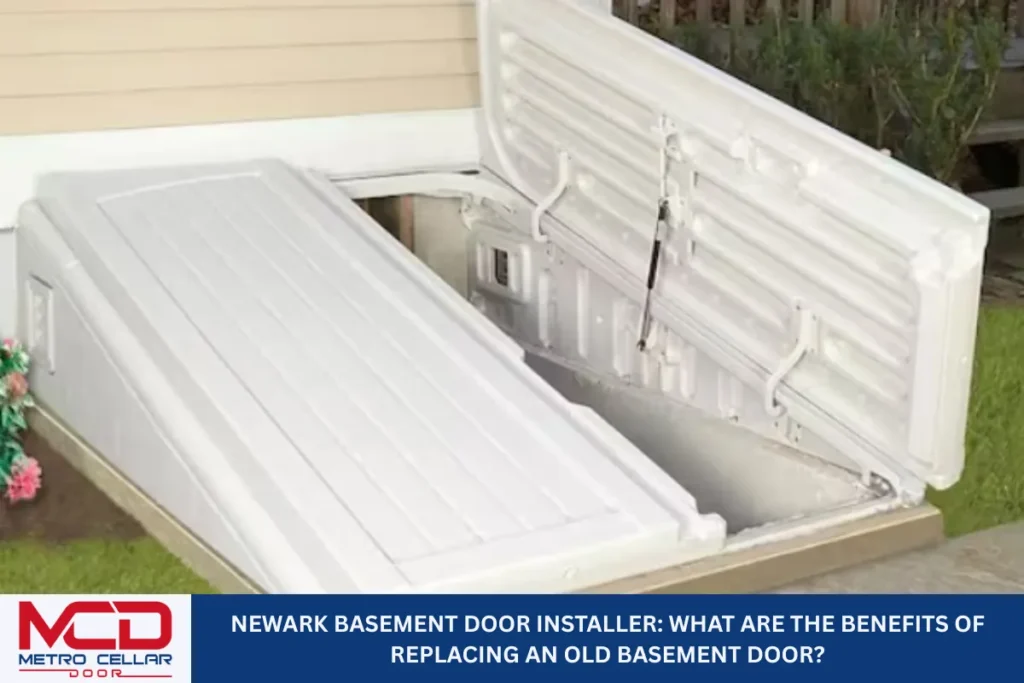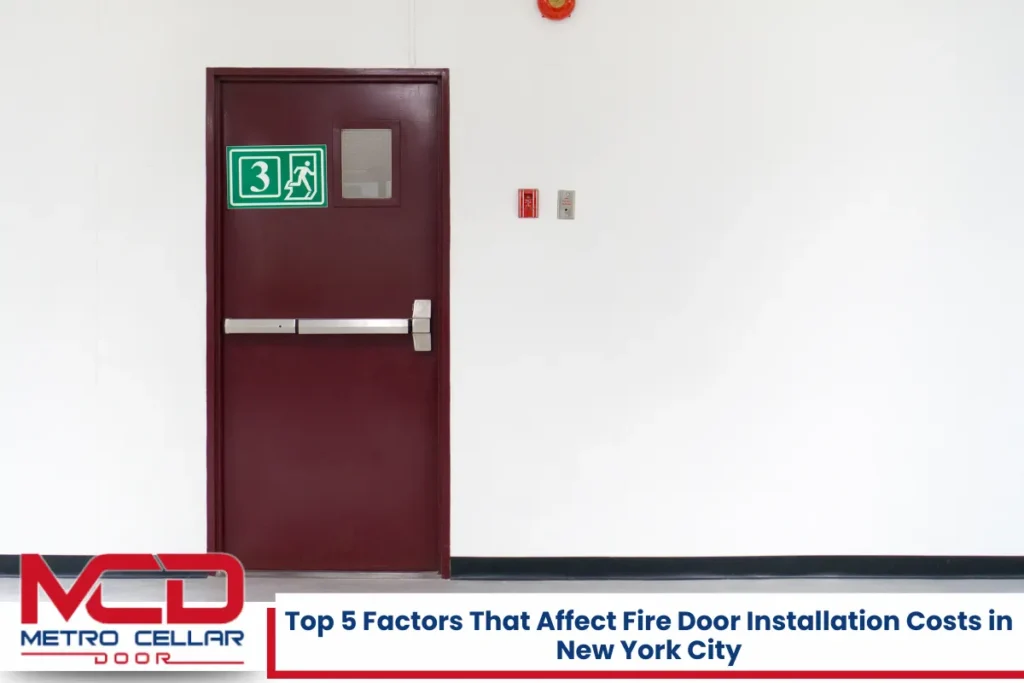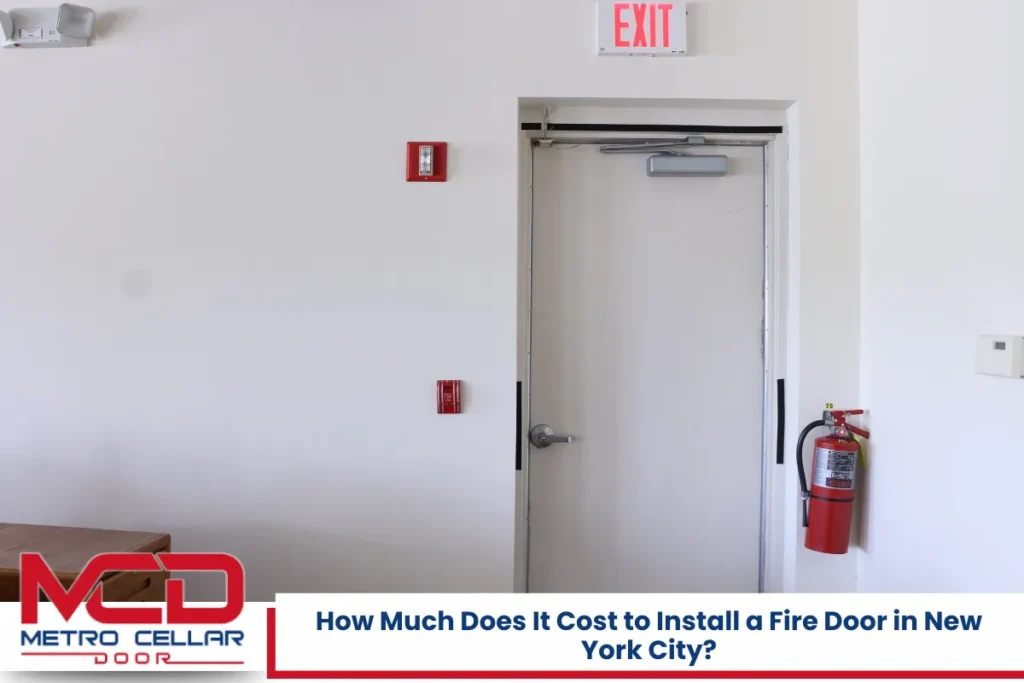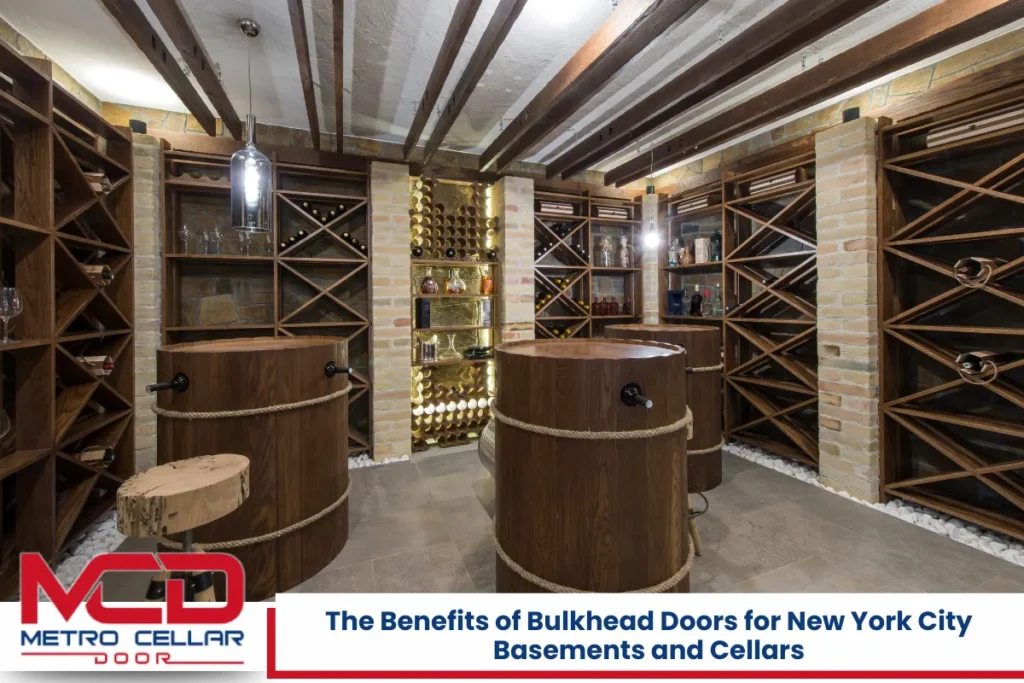Bulkhead Door Installer: Comparing DIY and Professional Costs in NYC
A bulkhead door installer plays a major role in providing safe, exterior access to basements, especially in a city like New York, where every square foot counts. Choosing whether to install a bulkhead door yourself or to hire a professional can significantly affect your budget, the quality of the work, and the installation’s durability. Understanding the differences between the two options is crucial before making a decision.
This guide will help you weigh the pros and cons of both DIY and professional installation, with a clear cost breakdown, considerations specific to NYC building codes, and other essential details. Whether you’re replacing an old steel door or installing a new one, knowing what each approach involves will help you avoid mistakes and make the right investment for your home or building.
What Is a Bulkhead Door?

A bulkhead door is an exterior door, usually made of metal or heavy-duty plastic, that provides direct access to a basement or cellar from the outside. It’s often installed at an angle and is designed to withstand harsh weather, foot traffic, and long-term wear. These doors are common in many New York City homes, especially those with basements used for storage, laundry, or utility access.
Bulkhead doors serve several important functions:
- Protects against water infiltration: Prevents rain and snowmelt from entering basement spaces.
- Secures access points: Adds an extra layer of security to prevent unauthorized entry.
- Provides emergency egress: Offers a safe way out during emergencies.
- Supports structural integrity: Proper installation ensures doors don’t shift or leak over time.
Because New York City is prone to extreme weather and older building foundations, having a well-installed bulkhead door isn’t just a convenience—it’s a necessity.
Key Differences Between DIY and Professional Installation
Installing a bulkhead door requires careful planning, especially in NYC, where many homes are built tightly together and must follow city-specific regulations. The two primary approaches—DIY and hiring a professional—differ in skill requirements, time investment, long-term durability, and upfront cost.
Each method has unique advantages and limitations, depending on your comfort level, budget, and familiarity with tools and construction work. In the next sections, we’ll explore each route in more detail.
DIY Bulkhead Door Installation: What’s Involved

Doing it yourself might sound appealing because of the potential savings. However, it’s essential to understand the full scope of a DIY installation before picking up the tools.
Tools and Materials Required
To complete a DIY bulkhead door installation, you’ll need:
- Pre-fabricated bulkhead door kit
- Drill and hammer drill
- Screwdrivers, saws, and chisels
- Measuring tools (tape measure, level, framing square)
- Concrete anchors and sealant
- Weatherproofing materials
Most of these tools can be rented, but costs add up quickly. If you don’t already own them, renting could cost between $100 to $300 on top of material costs.
Time Commitment
A bulkhead door installation takes about 15–20 hours for someone with experience in masonry or carpentry. This includes:
- Removing any old or damaged doors
- Preparing the concrete opening
- Aligning and anchoring the frame
- Sealing all seams to prevent leaks
- Cleaning up the job site
Delays are common for first-time DIYers, especially if unexpected issues come up during installation.
Cost Estimate for DIY Installation
- Bulkhead door kit: $800 – $1,200
- Tool rental: $100 – $300
- Supplies and sealants: $50 – $150
Total estimated DIY cost: $950 – $1,650
Pros and Limitations of DIY Installation
Advantages
- Lower upfront cost: No labor fees means lower overall spending.
- Flexible scheduling: Work can be done outside of regular working hours.
- Learning experience: Great for those looking to improve their home improvement skills.
Drawbacks
- Higher risk of error: Incorrect measurements or improper sealing can cause leaks and damage.
- Time-consuming: The job can stretch over multiple days if problems arise.
- No professional warranty: All mistakes or future repairs are at your expense.
- Code compliance: NYC building codes can be tricky to understand and must be followed precisely.
Professional Bulkhead Door Installation: What to Expect

Hiring a professional bulkhead door installer ensures proper installation from start to finish. Professionals understand how to navigate tight property lines, city regulations, and hidden structural challenges common in NYC homes.
Full-Service Installation
A professional typically offers:
- On-site inspection and accurate measurements
- Removal and disposal of existing doors
- Custom fitting and framing adjustments
- Water-sealing and weatherproofing
- Post-installation cleanup
Some installers also offer fabrication for unique door dimensions or unusual foundations.
Timeframe
Professional installations are usually completed in 4 to 6 hours, with less disruption to your routine. Experienced installers bring specialized tools and trained crews to speed up the process without sacrificing quality.
Cost Estimate for Professional Installation
In NYC, costs for hiring a bulkhead door installer vary based on location, door type, and property condition:
- Standard install: $1,800 – $2,500
- Custom fabrication or complex foundations: $2,800 – $3,500
This price usually includes labor, disposal, permits, and warranties.
Benefits of Hiring a Professional in NYC
New York City has unique construction and building challenges that make professional installation more practical:
- Strict codes and permits: Professionals are familiar with local codes and will handle permits.
- Old foundations: Many NYC homes have uneven or deteriorating foundations that need expert handling.
- Weatherproofing expertise: Proper sealing ensures long-term protection against water damage.
- High-quality tools: Installers use commercial-grade equipment for precise results.
- Warranties: Many pros offer 1 to 5-year warranties on labor and materials.
DIY Mistakes That Could Cost You More

Skipping professional help can lead to issues that require expensive fixes. Common problems in DIY jobs include:
- Uneven installation: Misaligned doors lead to gaps, leaks, and water intrusion.
- Foundation damage: Drilling or cutting without the right tools can crack existing structures.
- Improper sealing: If sealant is applied poorly, the door may not last more than a few seasons.
- Code violations: Unpermitted work can result in fines or failed inspections during property sales.
Addressing these errors later could cost hundreds—or even thousands—more than hiring a pro from the beginning.
How NYC Regulations Affect Installation
The New York City Department of Buildings has specific requirements for bulkhead door placement, egress clearance, and material durability. Some neighborhoods, especially in historic districts, may also have appearance requirements that limit which styles or materials are allowed.
Permit applications and inspections may be required before and after installation. A professional will typically manage this process on your behalf to ensure everything is compliant from day one.
Overall Cost Comparison: DIY vs. Professional in NYC
Let’s look at how the numbers stack up when comparing both options side by side.
| Feature | DIY Installation | Professional Installation |
| Average Total Cost | $950 – $1,650 | $1,800 – $3,500 |
| Tools Included? | No | Yes |
| Time to Complete | 15–20 hours | 4–6 hours |
| Building Code Knowledge | Must self-research | Included |
| Waterproof Sealing | Basic or uncertain | High-grade professional |
| Risk of Error | High | Low |
| Warranty or Guarantee | None | Typically 1–5 years |
Making the Right Choice for Your Property

The decision between DIY and professional installation depends on your experience, time availability, and willingness to manage risk. In a place like New York City, where weather extremes, older buildings, and strict codes are the norm, hiring a professional often brings better long-term value.
Though DIY installation offers upfront savings, the risks of error, future repairs, or code violations could outweigh the benefits. A professional bulkhead door installer ensures the work is done right the first time—saving you time, money, and stress.
Bulkhead Door Installer in NYC – Metro Cellar Door Bilco Pro

Metro Cellar Door Bilco Pro is your expert bulkhead door installer in New York City. We provide top-tier service for homeowners and businesses looking for safe, long-lasting door installations. With decades of experience working throughout the five boroughs, we understand what NYC properties demand—tight spaces, tough foundations, and strict code compliance.
Our team specializes in Bilco doors, sidewalk cellar doors, and fire-rated installations. We handle everything from custom fabrication to full installation and offer free estimates on all projects.
Get in touch today by calling (929) 979-7313. Whether it’s a residential project or a commercial job, we are the right choice for a secure, properly installed bulkhead door you can count on!
Frequently Asked Questions
What door materials are best for bulkhead door installations in NYC?
When choosing materials for a bulkhead door in New York City, durability and weather resistance are key. Here’s a breakdown of the most common door materials:
- Steel doors: Strong, secure, and ideal for areas prone to water damage or break-ins. Often used in fire-rated door setups.
- Fiberglass doors: Lightweight, energy-efficient, and resistant to rust and rot. Great for long-term use.
- Wooden doors: Offer natural beauty and warmth but require more maintenance in humid climates.
- Aluminum doors: Lightweight and corrosion-resistant, but may dent more easily than steel.
For cellar door installations, steel or fiberglass options are often recommended due to their resistance to water leaks and structural damage. The right choice depends on your door type, climate, and installation costs. If you’re planning a DIY project, fiberglass or prehung steel doors may offer easier installation and a longer lifespan.
How do installation costs vary between DIY and professional services?
Installation costs can differ greatly depending on the installation process, the door style, and whether you’re doing it yourself or hiring an expert. Here’s what to expect in New York City:
DIY installation cost range:
- $950 to $1,650
- Includes door kit, tools, sealants, and hardware
- Doesn’t include permits or labor
Professional installation service cost range:
- $1,800 to $3,500
- Includes all labor, materials, code compliance, and cleanup
- May also offer warranties and custom door fitting
If you’re experienced with home improvement and have the necessary tools, a DIY project may seem more cost-effective. However, DIY jobs often risk poor sealing, water damage, or misaligned door frames, which can reduce property value. In contrast, professional installation ensures compliance with NYC building codes and can improve your home’s curb appeal and energy efficiency.
What are the risks of bulkhead door replacement without a professional?
Replacing a bulkhead door without hiring a pro might save you money upfront. Still, it carries several risks—especially in NYC’s tight, complex property layouts. Key issues include:
Water leaks and drainage problems: Improper sealing around the door frame can lead to basement flooding or structural damage.
Code violations: NYC has strict regulations for fire-rated doors, basement egress, and door sizes. Mistakes can lead to costly fines.
Improper alignment: An uneven door replacement can prevent the door from sealing correctly, reducing energy efficiency and security.
Limited durability: DIY work often lacks the materials and techniques needed for long-term resilience against weather and foot traffic.
A professional installation reduces these risks. It also ensures that your door materials, from steel doors to custom doors, are properly fitted and weatherproofed. A poorly installed cellar door can harm both function and property value.
How do door styles affect the cost and performance of cellar or bulkhead doors?
Door styles play a big role in how your bulkhead replacement performs and its associated costs. Whether you’re improving curb appeal or enhancing energy efficiency, the right style makes a difference.
Common door styles and their impact:
- Sliding doors: Not typically used for bulkhead applications, but suitable for interior doors or patio spaces.
- Solid wood doors: Beautiful but high-maintenance. These have excellent insulation but can suffer from rot or warping.
- Steel doors: Durable and secure, ideal for exterior use and resistant to water damage.
- Wood doors: Cost-effective but less weather-resistant than steel or fiberglass.
- Fiberglass doors: Offer good insulation, long life, and a wide variety of finishes.
Custom doors—designed to match unique dimensions—may raise installation costs, but they guarantee a perfect fit. In NYC, where basements vary in design, investing in a properly sized, well-sealed cellar door improves functionality and value.
How does a bulkhead door improve energy efficiency and home protection?
A properly installed bulkhead door helps with both energy efficiency and home protection in multiple ways:
- Insulation: High-quality door materials like fiberglass or insulated steel doors reduce heat transfer, keeping your basement warmer in winter and cooler in summer.
- Sealing: Prevents water leaks, air drafts, and pests from entering, which is essential in humid NYC basements.
- Security: Reinforced door frames and locks add another layer of defense against unauthorized entry.
- Durability: Weather-resistant door styles and sealed edges extend the door’s lifespan and reduce maintenance.
In older NYC homes, outdated or poorly sealed wood doors are common sources of energy loss. Replacing them with modern, fire-rated doors or custom doors designed for NYC’s climate conditions can improve comfort and reduce energy bills. Investing in the right installation service ensures you get all the benefits without sacrificing safety or code compliance.
Read more: Benefits of Hiring a Professional Bulkhead Door Installer in New York City
